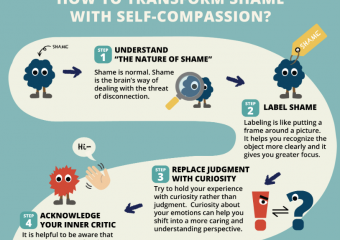When it comes to treating trauma, we’re often working with clients who have a low tolerance for distress. And when faced with traumatic memories or difficult emotions, they may respond by slipping into a state of hypoarousal to defend against the pain. So in the video below, Janina Fisher, PhD shares how she helps hypoaroused […]
Treating Trauma: Strategies to Help Clients Feel Safe
Trauma can rip away a client’s sense of safety . . . . . . and leave them with a nervous system that is primed to detect threats. That’s why as practitioners, it’s so important that we have strategies to build a client’s feelings of safety before we help them process traumatic memories. So in […]
When Internalized Stereotypes Impact Depression
There are times when a patient may internalize painful judgments and stereotypes from the world, and they might not even realize they’ve done it. And when that patient is struggling with depression, addressing this toxic messaging can be a critical step in healing. In the video below, Shelly Harrell, PhD, will get into why it’s […]
A Compassion-Based Approach to Foster Change
Even when a client is making progress, self-blame, shame, and self-criticism can hold them back from reaching their goals. But according to Dennis Tirch, PhD there is a compassion-based strategy that can help clients keep moving forward, even during difficult emotions or circumstances. It’s a metaphor that he adapted from ACT (Acceptance and Commitment Therapy). […]
[Infographic] A 5-Step Process for Transforming Shame with Self-Compassion
As practitioners, we know how transformative self-compassion can be – especially when it comes to healing shame. But here’s the thing – when a client is deeply rooted in shame, the very idea of being kind to themselves can feel undeserved and uncomfortable, even unnatural. So what if we could give them a step-by-step process […]




